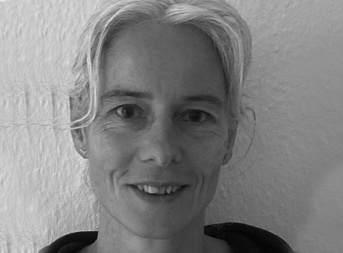Engaging in collaborative research on "sociabilities and religiosities" in urban Senegal
It is a great pleasure for me to introduce this collaborative project by sharing with you some of my thoughts on the concept of sociability and how we put it into practice collectively
First of all, sociability means something positive – it refers to non-hostile, non-predatory relations between humans or other living beings. In sociological discourse, it denotes particularly valued forms of human sociation and relation. I was fascinated to read Georg Simmel’s essay on sociability (in German: “Geselligkeit”), first presented in 1910, where he coined the term as a fundamental concept which accounts for the basic social need for “togetherness” (German: “Miteinander”). He thought that this need is motivating people to come together in some kind of (more or less temporary) association, collective or community, to form a unity in spite of the differences and diverging interests between the individuals involved. According to Simmel, human sociability as such is not a result of human rationality – it rather results from an emotional need which brings people together for the pure joy of being together. He explained the value of sociable interaction by their particular enjoyable, amicable, friendly, or “civil” quality, which he related to ideas of the “good form” of sociable behaviour, including tact, politeness, gentleness and humour. Simmel emphasized that these qualities disconnect sociability from the “rational” material and strategic interests that are related to the search of economic profit, political power, securing of material livelihood, etc. … Moreover, he characterized sociability as a “playform” of human society where social and economic inequalities are temporarily ignored and people treat each other “as if” they were equal. For Simmel, this playform of human interaction was not just some kind of superfluous decorum – he thought that it was essential for the existence of society. Much more could be said about Simmel’s concept and its usefulness as a heuristic device for empirical social research. Since I started to realize how many forms of sociable interaction were at play in the context of my own work on everyday lifeworlds and religiosities in urban Senegal, I got more and more interested in the manifold aspects and meanings of sociability – not only as an empirical reality ‘out there’, characterizing ‘the others’, but also as something that we can, and indeed should, practice and acknowledge among ourselves. Something that we can be sharing within and beyond academia. In fact, a lot of my interactions during so called fieldwork have been lessons in sociability, which I received from people who were willing to share something with me.
In the meantime, I have also realized that I had already got a lot of practical ‘teachings’ in various forms of sociability by my Senegalese colleagues, long before I started to engage theoretically with the concept. I gratefully and joyfully acknowledge that Abdourahmane Seck has been one of my most generous teachers of sociability in practice – not least by his sense of humour and his genuine interest in transforming academic practices into “playforms” that are valuable within academia as well as beyond, creating a framework for sociable interactions that can be useful and inspiring hope for positive change not only for us, but also for upcoming generations.
When we got the possibility to mobilise some research funds, Abdou and I decided to put sociability into practice in a collaborative project that would involve students and young researcher who were already engaged at the Groupe d’Action et d’Étude Critique – Africa (GAEC) in Saint Louis, and familiar with its methodological agenda. The funding for our collaboration was generously provided by the Merian Institute for Advanced Studies in Africa (MIASA) in the framework of a fellowship-programme, of which I was part from September to December 2022. Since this programme entailed my presence at the University of Ghana, Legon-Accra, we started our project with a transmission and mutual sharing of our ideas during an online block-seminar where we successively concretized the practical form and possible outcome of our collaboration.
My efforts in general translations (shifting between German, anglophone and francophone contexts) were complemented by Abdou’s experiences in Senegalese realities, that enriched our understandings of sociability and its potential meanings. His encouragement to trust in the inspirations resulting from our conversations around Simmel’s theoretical concept was very important – for all of us. I believe that the texts that have been produced on this basis can testify that this trust was just and adequate. Their finalization involved a lot of sharing and caring in a spirit of mutual respect and appreciation, in order to let new forms of authorship come into being.
The young researcher who collaborated with us have applied their own ideas concerning the links between sociabilities and religiosities through small-scale empirical case studies on different (religious as well as non-religious) everyday practices in various urban Senegalese contexts with which they were already familiar through previous research activities. Their familiarity with the respective ‘field’ allowed them to use the new conceptual lens with a sharp and close view on many apparently banal details and to come up with very rich and sometimes surprising observations.
I am happy about the beautiful texts that have been produced! However, I think that our collaboration has also provided us with experiences that were – and are still – valuable just as such: sociable encounters.

Nadine Sieveking has an extensive experience of empirical research, covering various domains of embodied social practice and transcultural phenomena that have emerged from translocal, transnational as well as transcontinental entanglements. Her regional expertise is based on fieldwork in Germany, Senegal, Ghana, Burkina Faso, and Mali.
